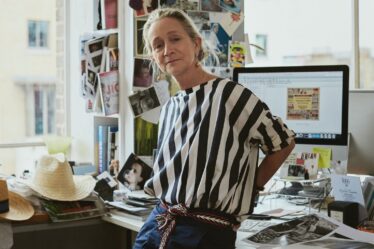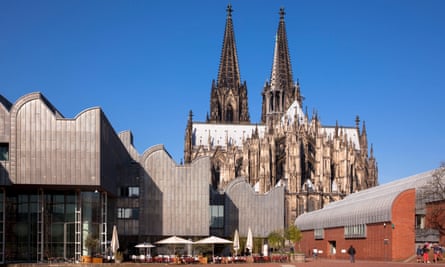
Winning tip: Caravaggio in his element, Malta
Commissioned in the early 1600s by the Order of St John in Malta, Caravaggio’s masterpiece, The Beheading of Saint John the Baptist, has been hung in St John’s Co-Cathedral in Valletta, Malta, ever since. It is rare to view a painting in the space intended by the artist, in this case the Oratory, a place of prayer, rather than the modern exhibition hall. And so it felt an enormous privilege to experience this masterpiece, which is immense – 520 x 370cm – along with Caravaggio’s Saint Jerome Writing in the silence of the Oratory, and all for €15.
Sara Godfrey
Picasso in Cologne
Of all the artists associated with Germany, Picasso was unexpected. Despite this, just steps from the iconic, gothic Cologne Cathedral sits the Museum Ludwig (€12), home to one of the largest collections of the artist’s works in the world. An exhibition hosted in 2021-2022 shone intense light on the surreal Spaniard’s deep connection with a formerly divided Germany and now the airy halls of this gallery are lined with some of his most noteworthy works. Also featuring are Warhols, Lichtensteins and Dalís; even the Cologne Philharmonic plays here. A healthy slice of the modern in a medieval city.
Matthew Walsh
Medieval cell paintings, Florence
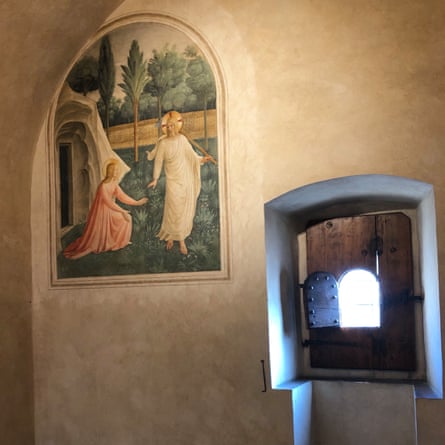
Florence is full of world-famous sights, but in the Convent of San Marco is a series of tiny cells decorated in the mid-15th century by Fra Angelico. Thick stone walls contain narrow window openings into these confined little rooms; but peering in, you find paintings of the most astonishing, luminous beauty. Nothing I’ve seen captures so perfectly the medieval combination of cold asceticism with transcendent glory. And it only costs four euros to go in.
florenceartmuseums.com
Laura
Profile
Readers’ tips: send a tip for a chance to win a £200 voucher for a Coolstays break
Show
Guardian Travel readers’ tips
Every week we ask our readers for recommendations from their travels. A selection of tips will be featured online and may appear in print. To enter the latest competition visit the readers’ tips homepage
–
Museum with a view, Vienna
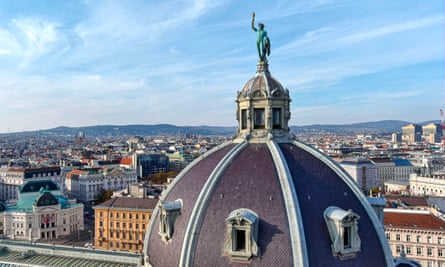
For the sum of €8 (or about one London pint) you can get the most magnificent view of Vienna from the roof of the Natural History Museum. Available Friday through Sunday at 4pm, the tour is run in German, but the view alone is worth the fee. If you’re scared of heights at the start, I can promise you won’t be by the end.
Alice
Chaotic artistic glory, Dublin
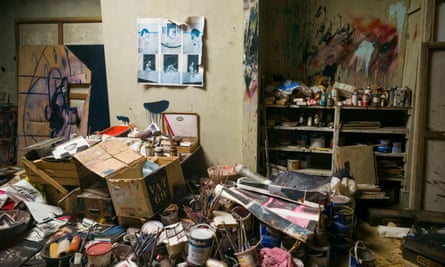
James Joyce might have put Dublin on the map, but for an alternative cultural ramble, forget Bloomsday and take in the masterpieces of Ireland’s greatest 20th-century artists for free at the Hugh Lane Gallery, the oldest public modern art gallery in continuous existence worldwide. Stunning as the masterpieces by Renoir and Manet are, the real highlights are the Irish artists on display. Admire Francis Bacon’s painstakingly reconstructed London studio in all its chaotic glory; an entire room of Sean Scully’s earthy tones; Harry Clarke’s stained-glass windows and works by Mainie Jellett, Mary Swanzy and Evie Hone, pioneering female painters who brought cubism to Ireland in the 1920s.
Selena Daly
Pre-Romanesque church, Oviedo, Spain
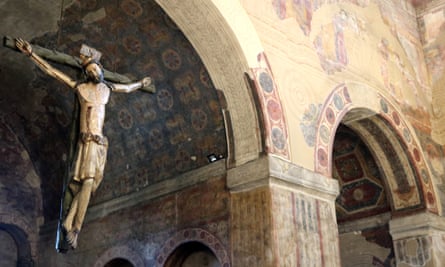
The region of Asturias in north-west Spain is famous for its pre-Romanesque buildings, and none is more accessible than the church of San Julián in Oviedo, very close to the city centre. Built around 830, its three naves have the typical arches and pillars of the period, but what bowls the visitor over are the wall paintings – geometric patterns, views as if from a window, delicately coloured and intricately designed, all beautifully preserved and clear to see in light flooding through the unusually large windows. There is a stunning wooden crucifix that seems to float in mid-air, with Jesus looking down benevolently at those who come to gaze in awe and to give thanks to those who ensured the survival of this wonderful gem.
Barbara Forbes
Fun and pastry in Poznan, Poland
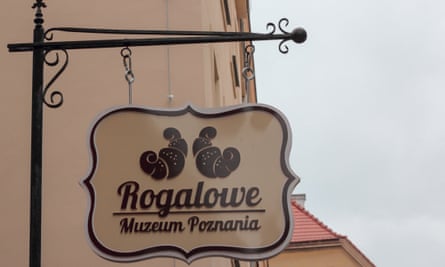
I don’t know if you’re looking for something more highbrow but I recently visited the Rogalowe croissant museum in Poznan. An hour-long performance which is part interactive cooking class, part history lesson and part standup comedy, it reminded me a little of The Generation Game, if that had ever been funny. The audience, from most corners of Europe, were equally bemused and delighted as we were talked through the history and production of this delicious local variation of the well-known French pastry. Varying degrees of enthusiasm from “willing” participants, perfect comic timing from the hosts and a cake to take home made this the highlight of our trip.
John
Budapest in miniature
The miniature statues of Budapest are amazing. All done by Mihály Kolodko, they are interesting and thought-provoking pieces, including observations of female empowerment, the situation in Ukraine and some more fun ones (representing cartoons or a Rubik’s cube). Hunting them down also provides you with a great insight into the city, including some beautiful architecture (libraries, train stations, a synagogue).
Vicki Black
Icons saved from communism, Albania
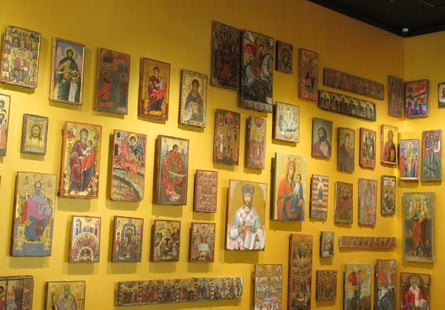
The National Museum of Medieval Art in Korçë is stunning and contains icons saved from Orthodox churches when communists banned religion in 1967. A Golden Wall, covering two floors, shimmers with icons by local artists, including Onufri, noted for his use of the colour red. A room with red floor, walls and ceiling contains a portrait of St Christopher with a dog’s face, due to a mistranslation of the word Canaanite, while in stark contrast, a bright White Room had a singular icon. Finally, a Black Labyrinth Pavilion contains more Onufri icons, where the bright red colours radiated on black walls.
Roy Messenger
Ancient Greek tech, Crete
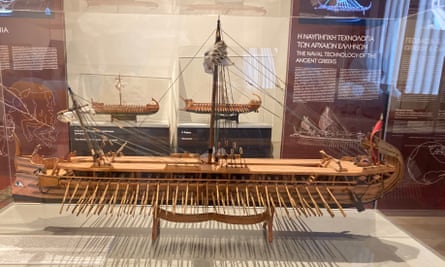
We could have missed the biggest surprise of our trip to Crete, the Museum of Ancient Greek Technology in Heraklion. The knowledgable staff answered our questions with simple demonstrations and models. This museum rearranged all our suppositions; this was not what we were taught in school. The Greeks impressed audiences with complex theatre techniques. They were using robots and pulley systems, conjuring up the power of the gods. Fountains spouted water through displacement of air. There are models of machines that built the acropolis, Greek triremes and automatic reloading crossbows. Their knowledge of astronomy, development of clocks and computing systems was amazing.
Kate Holbrook

Please use the comments to tell us about your own favourite cultural hotspots

